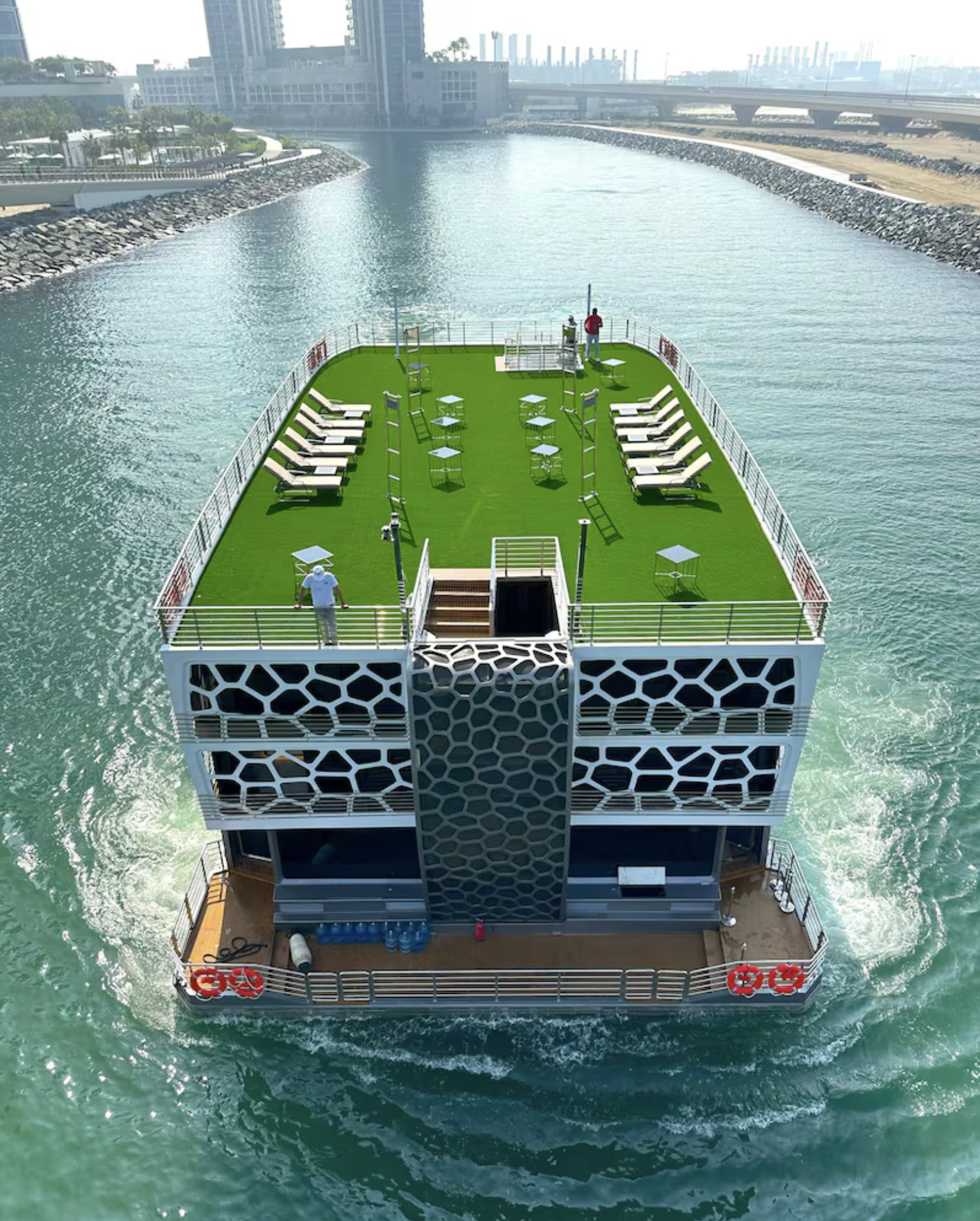A New Era in Luxury Hospitality and Experiential Capital
Abu Dhabi continues to redefine what hospitality means in a region already synonymous with luxury. The launch of the UAE’s first-ever floating superyacht hotel, the Orchid Overnight Super Yacht, marks a pivotal moment in how the emirate integrates experience, capital, and tourism under one evolving hospitality framework.
Scheduled to open in October 2025, this landmark project—permanently docked at Yas Marina and operated by Dutch Oriental Mega Yachts—is more than a maritime innovation. It signals Abu Dhabi’s strategic commitment to positioning itself as the epicenter of experiential luxury in the Middle East.
Redefining the Hospitality Model
The Orchid Super Yacht introduces a new vertical in the UAE’s tourism and leisure sector by merging hospitality with mobility.
Key features include:
- 31 bespoke rooms, including multiple VIP suites with private hot tubs.
- Nightly rates starting from AED 950–990, offering a tiered luxury experience accessible to global travelers and high-net-worth guests alike.
- Sundowner and dinner cruises along Abu Dhabi’s coastline, transforming stays into immersive experiences.
- Full buyout options for corporate or private events, redefining exclusivity for the region’s elite market.
This project is not just accommodation—it’s a floating hospitality ecosystem, designed to attract global attention while setting a new benchmark in regional innovation.
Air Mobility as an Engine of Economic and Spatial Transformation
The planned air taxi routes — particularly between Ras Al Khaimah and Dubai — represent more than convenience. They mark the start of regional economic integration through vertical infrastructure. By reducing inter-emirate travel times from hours to minutes, the network unlocks new potential for business mobility, tourism, and cross-emirate workforce connectivity.
For investors and developers, this means a new category of mobility infrastructure assets — high-value, long-term platforms tied to smart city ecosystems, renewable energy, and logistics transformation. As air mobility evolves, so too will the supporting layers: AI-driven air traffic control, real estate near vertiports, and ancillary capital inflows into aerospace and clean-tech sectors.
The Strategic Context: Experience as Economic Engine
Abu Dhabi’s tourism strategy has evolved beyond traditional hospitality. It now prioritizes experiential capital—where travelers seek emotional connection, narrative, and uniqueness over conventional luxury.
The superyacht hotel supports this evolution by reinforcing the city’s position across three key dimensions:
- Diversification: Strengthening non-oil revenue through luxury tourism and event-driven hospitality.
- Destination Branding: Enhancing Yas Island’s reputation as a global entertainment and leisure hub.
- Investment Magnetism: Encouraging cross-border partnerships and private capital involvement in next-generation tourism assets.
This alignment reflects a broader trend: the UAE’s transformation of tourism into a strategic investment sector that fuels both perception and performance.
The Capital Architecture of Innovation
The success of such ventures depends on more than creative design. It requires integrated capital and governance frameworks capable of supporting cross-sector collaboration.
From a business advisory perspective, three structural elements stand out:
- Regulatory Coordination: Maritime, tourism, and hospitality regulations must harmonize to enable floating hotel operations and ensure compliance.
- Financial Structuring: Hybrid ownership and management models are emerging to balance operational control with investment scalability.
- Asset Protection: As a high-value, movable asset, the yacht requires sophisticated legal and insurance frameworks to safeguard both investors and operators.
These dimensions illustrate Abu Dhabi’s increasing institutional maturity in translating luxury concepts into sustainable, regulated ventures.
The Broader Implications: The Future of Experiential Hospitality
The Orchid Super Yacht exemplifies a global shift toward experiential hospitality—where exclusivity is defined by access, personalization, and immersion rather than size or scale.
In the UAE, this model will likely extend to:
- Floating resorts and offshore leisure destinations.
- Event-driven maritime experiences integrated with urban tourism.
- Hybrid entertainment-investment platforms blending luxury, sustainability, and mobility.
This evolution reflects a regional mindset focused not on competition, but on category creation—transforming luxury into an ecosystem of memorable, capital-efficient experiences.
Handle Insight: Turning Experience into Structure
For investors, developers, and advisory leaders, Abu Dhabi’s superyacht hotel represents the convergence of three high-value sectors: hospitality, maritime innovation, and luxury capital.
Its success depends on the ability to integrate:
- Structured financing aligned with sustainable revenue models.
- Legal frameworks that balance mobility with compliance.
- Strategic storytelling that elevates experience into long-term brand equity.
The result is not just a new hotel, but a new asset class in the region’s luxury economy—one that merges real estate, tourism, and innovation under a single vision of experiential growth.


